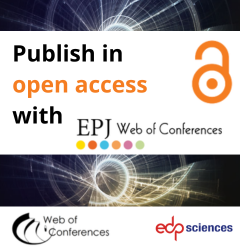Conferences > Physics > Astronomy, Astrophysics and Cosmology > United States
Select a location
Any Location (virtual event) (1) Armenia (1) Australia (1) Austria (2) Brazil (4) Canada (1) Croatia (1) Czech Republic (1) France (3) Germany (13) Greece (2) Ireland (1) Italy (14) Japan (4) Mexico (2) Peru (1) Poland (5) South Korea (1) Spain (4) Switzerland (1) United Kingdom (2) United States (17)
United States
1
What is String Theory? Weaving Perspectives Together
08 Jan 2024 - 19 Apr 2024 • KITP, Santa Barbara, United States
Event listing ID:
1517560
Event website:
2
Anticipating the Rising Tide of Tidal Disruption Events: Theory and Observations
22 Apr 2024 - 25 Apr 2024 • Santa Barbara, United States
Event listing ID:
1519911
Event website:
3
Teachers' Conference — Supermassive Black Holes and their Destructive Tidal Forces
24 Apr 2024 - 27 Apr 2024 • Santa Barbara, United States
Event listing ID:
1590201
Event website:
4
AbSciCon 2024
05 May 2024 - 10 May 2024 • Providence, Rhode Island, United States
Event listing ID:
1530929
5
Loops 24
06 May 2024 - 10 May 2024 • Florida Atlantic University, Fort Lauderdale, Florida, United States
Event listing ID:
1517613
Event website:
6
Cosmic Signals of Dark Matter Physics: New Synergies
03 Jun 2024 - 06 Jun 2024 • Santa Barbara, United States
Event listing ID:
1519975
Event website:
7
244th AAS Meeting — 244th meeting of the American Astronomical Society
09 Jun 2024 - 13 Jun 2024 • Madison, WI, United States
Event listing ID:
1553632
Event website:
8
Multi-messenger Transients — Multi-messenger Transients from Binary Mergers & Stellar Explosions
04 Aug 2024 - 25 Aug 2024 • Aspen, Colorado, United States
Event listing ID:
1583309
9
Rise_Time: Explosive Astrophysics in the era of High-Cadence Astronomy
07 Aug 2024 - 09 Aug 2024 • West Lafayette, Indiana, United States
Event listing ID:
1583432
Event website:
10
Cosmic Dawn Revealed by JWST: The Physics of the First Stars, Galaxies, and Black Holes
26 Aug 2024 - 29 Aug 2024 • UC Santa Barbara, United States
Event listing ID:
1565396
Event website:
11
245th AAS Meeting — 245th meeting of the American Astronomical Society
12 Jan 2025 - 16 Jan 2025 • National Harbor, MD , United States
Event listing ID:
1083102
Event website:
12
Generalized Symmetries: High-Energy, Condensed Matter and Mathematics
07 Apr 2025 - 10 Apr 2025 • Santa Barbara, United States
Event listing ID:
1590182
Event website:
13
Planets on the Edge
05 May 2025 - 08 May 2025 • Santa Barbara, United States
Event listing ID:
1590194
Event website:
14
246th AAS Meeting — 246th meeting of the American Astronomical Society
04 Jun 2025 - 08 Jun 2025 • Anchorage, AK, United States
Event listing ID:
1566844
Event website:
15
247th AAS Meeting — 247th meeting of the American Astronomical Society
04 Jan 2026 - 08 Jan 2026 • Phoenix, AZ, United States
Event listing ID:
1401294
Event website:
16
252nd AAS Meeting — 252nd meeting of the American Astronomical Society
11 Jun 2028 - 15 Jun 2028 • Madison, WI, United States
Event listing ID:
1566821
Event website:
17
255th AAS Meeting — 255th meeting of the American Astronomical Society
09 Jan 2030 - 14 Jan 2030 • National Harbor, MD, United States
Event listing ID:
1566897
Event website:
Conference-Service.com offers, as part of its business activities, a directory of upcoming scientific and technical meetings. The calendar is published for the convenience of conference participants and we strive to support conference organisers who need to publish their upcoming events. Although great care is being taken to ensure the correctness of all entries, we cannot accept any liability that may arise from the presence, absence or incorrectness of any particular information on this website. Always check with the meeting organiser before making arrangements to participate in an event!
No tracking | No pop-ups | No animations
Last updated: 27 November 2023



